Sheffield Crucible Theatre 50th anniversary: Stories from accountant who helped build theatre and famous ex-Crucible boss Michael Grandage
and live on Freeview channel 276
A retired accountant has told how he unexpectedly found himself at the centre of discussions about setting up what would become Sheffield’s Crucible Theatre.
The story might have even made a great script for a play at Sheffield’s foremost theatre, where artistic directors including Michael Grandage, who is also interviewed in this piece, have made such exciting work over the past 50 years.
Advertisement
Hide AdAdvertisement
Hide AdJohn Beard, aged 89, who lives in Matlock, had always been interested in amateur drama while growing up in Southport, then the family evacuated to his father’s home city of Sheffield in 1939.
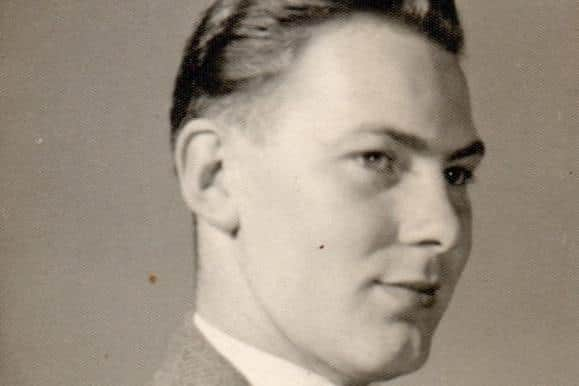

As a newlywed he moved to Fulwood after his National Service in the RAF and took up a job with a family firm. He got involved with the Denys Edwards Players, who performed at the Library Theatre across Tudor Square from where the Crucible would later stand, and also Sheffield Amateur Operatic Society.
He remembers that his first play with the Denys Edwards group was a drama, Mrs Moonlight, and he also appeared in comedy The Love Match as a young footballer.
John joked: “Young men were always in great demand!” adding: “I started a bit of acting but that was before I had my family, from 1956 to the early 60s. I enjoyed it.”
Advertisement
Hide AdAdvertisement
Hide AdJohn’s interests in figures and acting led to his involvement Sheffield Playhouse on Townhead Street, where Sheffield Repertory Company performed.
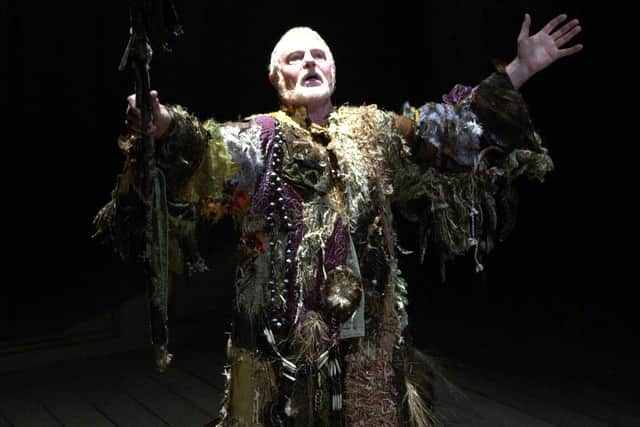

He said: “I was a chartered accountant and one of my partners, Matt Sheppard, was talking to a member of the board and they said they were looking for a treasurer.
"He said, ‘I’ve got just the young chap for you – one of my partners is interested in drama’. I found myself as treasurer of the Playhouse. This was in the mid-60s."
John said: “I got involved with budgeting for productions. I got to know the management and particularly the front of house staff and people doing the administration.”
The idea of a new theatre came as a surprise
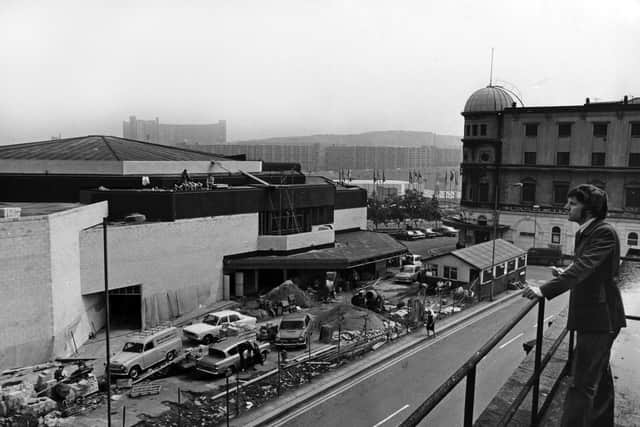

Advertisement
Hide AdAdvertisement
Hide AdHe met the Crucible’s first artistic director Colin George when Colin moved from Nottingham to take over the Playhouse.
John said: “It was an interesting time. We were running the theatre there, Colin was actually doing some quite different stuff than had been done before. He’d got lots of ideas.”
However, the idea of a new theatre came as a surprise to them both during a meeting with the council.
John said: “We actually went to a meeting at the corporation to get an increase in the revenue grant.
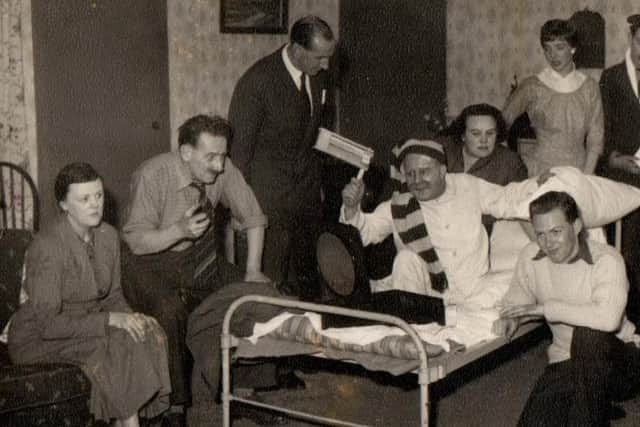

Advertisement
Hide AdAdvertisement
Hide Ad“When we got there, they said, ‘Actually, we would like the land that the theatre is on’. They had a road-widening traffic control system in mind. They never actually went ahead.”
The Playhouse was offered the chance to take on a new theatre at a peppercorn rent. John helped with the fundraising to get the money together for the new building, including taking a trip to the Arts Council in London and being wined and dined at the posh Royal Automobile Club.
John said: “The whole thing took off. We set up an appeal and we employed a publicity man who had been with British Steel. We got donations from the local charities, the corporation and the Arts Council.
“It was not all a bed of roses – there was quite a bit of controversy about the shape of the theatre. Originally it was thought to be a normal proscenium arch design.
Advertisement
Hide AdAdvertisement
Hide Ad“After Colin spoke to (theatre director and theatre designer) Sir Tyrone Guthrie and Tanya Moiseiwitsch, they wanted to do an open stage. He went out to Stratford, Ontario and New York to see some and actually directed some plays to get to know how it would work.”
Bad publicity from a famous actor
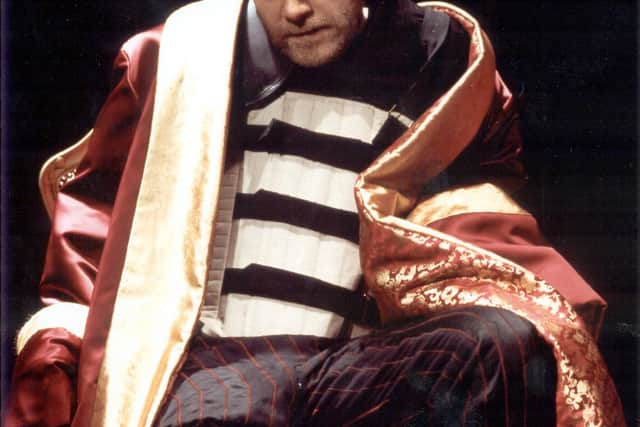

John added: “It had its drawbacks – touring companies were not geared up to thrust stages. They had to rethink the design of their shows.
“A lot of people didn’t agree with it – Sir Bernard Miles made some awful comments. He didn’t think anyone could write anything for it.
“But Colin had this idea and it went through.”
He thinks Colin was right: “It really is a wonderful stage to act on - although I’ve never appeared on it, I’ve stood at the back. You really feel as though you want to project.”
Advertisement
Hide AdAdvertisement
Hide AdJohn said it was ironic that many people remember the Crucible for the snooker, adding: “All power to the city, they were determined to get it.”
John remained involved at the Crucible for two or three years, then the theatre got its own accountants. He continued on the management committee for a couple of years, then work and family life got too busy.
He said: “I did enjoy being involved with the professional theatre, although from the admin side. I enjoyed the time I had doing it. I was glad to be associated with it.
“It was most enjoyable to be involved in it and I wish it well in the future. I shall try and get there.”
The man who brought Kenneth Branagh to the Crucible
Advertisement
Hide AdAdvertisement
Hide AdOne of the later Sheffield Theatres artistic directors to benefit from Colin George’s vision was Michael Grandage, who was at the Crucible from 2000 to 2005.
Michael recently returned to the theatre to direct the world premiere of Ian McDiarmid’s one-man show, The Lemon Table, which was based on two Julian Barnes short stories.
The actor who plays Star Wars super villain Emperor Palpatine is the latest in a long list of famous names that Michael attracted to work at the Crucible. Ian played the lead role in Edward Bond’s play Lear 16 years ago.
Michael said: “One of the things I’ve said when I was there and later was that, as theatre-goers, Sheffielders are people who love risk taking. It’s a very interesting, very vibrant city with a lot of young people. People who are genuinely in search of something different.
Advertisement
Hide AdAdvertisement
Hide Ad“We threw everything at it, from Schiller to great 20th-century writers’ plays not done for 50 years. Audiences responded and debated. We used to do tons of feedback.”
Michael, who went on to run the famous Donmar Warehouse theatre in London and now runs the Michael Grandage Theatre Company, remembered how he got the chance to take the theatre on as a relatively new director working at the Crucible.
“My first show was in 1997. In 2000, when Deborah Paige left, Grahame Morris, who was the executive director, asked me to step up.
“It was a very bold thing of the board and him to do. Normally you require quite a lot more experience – I convinced them i was 100 per cent dedicated to the city and the productions.
Advertisement
Hide AdAdvertisement
Hide Ad"We put on two Joe Orton plays and two Shakespeares straightaway. I moved out of London and I made a commitment to it.
"I saw huge potential in that theatre. A lot of people had gone there before me and put on extraordinary work. We made a real commitment to what the theatre stood for in the community.”
‘Is there an airport? We’re flying in from America’
He said his ambition was to make Sheffield into a major centre internationally for British theatre – rather than transferring big Crucible productions to London, he wanted London theatre-goers to be excited to make the trip north, which he succeeded in.
"Kenneth Branagh came back to do Shakespeare for me. He had been off the stage for 10 years. He would usually have done eight weeks in the West End.
Advertisement
Hide AdAdvertisement
Hide Ad“It was brilliant for Sheffield. We had people asking, ‘is there an airport? We’re flying in from America’. I wanted to create an international atmosphere and put Sheffield at the centre of it.
"I did that partly by inviting Joseph Fiennes and Diana Rigg – a whole lot of people were prepared to come and do their show they normally would have done in London.
"I told them you will be looked after and be part of the community. You’ll feel good and be absolutely supported by the infrastructure of a creative building and we’ll look after you.
"We managed to create a theatre home for people who wanted to do the big shows there. Every time you announced Branagh or Derek Jacobi or a big name, it allowed you to build an audience for the shows you would never see.
Advertisement
Hide AdAdvertisement
Hide Ad“Sheffield Theatres is a brand. People get loyal to a brand, so you say if you come and see Kenneth Branagh in Richard III, why not come and see this as well.”
Michael loves Colin George’s vision: “It is an epic stage. You have to react to epic stages with epic staging.
"Creating extraordinary pictures is something I wanted to do with my time. I like creating visuals with designers but actually working with actors and getting great performances. The Crucible gave me the opportunity to do that for seven years.
"It was nice to come back for the 50th year, at about the same time as the anniversary.”
